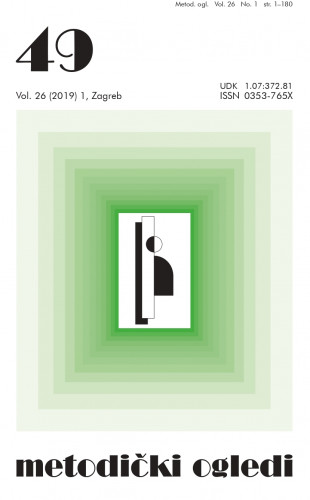U Hrvatskoj i svijetu manji je dio nastavničkoga kadra koji smatra da je nastavnička profesija cijenjena. Većina se autora i autorica slaže da i jačanje nastavničkoga identiteta moglo pomoći podizanju vrijednosti obrazovanja. Ciljevi istraživanja bili su: ispitati na koje načine obrazovanje doprinosi kvaliteti života i koje su prednosti nastavničke profesije, ispitati doživljaj statusa nastavničke profesije i promjena u obrazovnom sustavu te utvrditi motivaciju za nastavničku profesiju. Uzorak je obuhvaćao 74 učenika i učenica osnovnih i srednjih škola, 73 roditelja, 38 studenata i studentica nastavničkih studija te 35 osnovnoškolskih i srednjoškolskih nastavnika i nastavnica. Rezultati se interpretiraju u kontekstu Korthagenovog modela te pokazuju da nastavnici i nastavnice više spominju obilježja nastavničkoga identiteta koja se dotiču temeljnih vrijednosti, dok roditelji i učenici više spominju obilježja ponašanja i kompetencija. Zadaća je inicijalnoga obrazovanja nastavnika i nastavnica poticati mlade na promišljanje o vrijednostima nastavničke profesije jer će time cijeniti i poticati razvijanje vrijednosti nastavničkoga identiteta.; In Croatia, as well as around the world, teachers would rarely describe their profession as respected in the society. Most authors agree that the strengthening of the teacher’s identity might help in elevating the perceived value and the overall status of education. The objectives of this study are: to identify ways in which education increases the quality of life, to explore perception of teaching profession status, to examine the perception of both the teaching profession and changes in the educational system and, finally, to determine the motivation for becoming a teacher. The sample comprises 74 primary and secondary school students, 73 parents, 38 students of teacher studies and 35 primary and secondary school teachers. Results were interpreted in the context of Korthagen’s model. Results show that teachers view teacher’s identity as connected to the core values, while parents and students describe the teacher’s identity through characteristics related to behaviour and competences. The task of the initial teacher education is to encourage students to reflect upon the values of the teaching profession. Such reflection helps in building the core values of the teacher’s identity and increases one’s appreciation of it.
Sažetak

 Metodički ogledi : 26,1(2019) / glavna i odgovorna urednica, editor-in-chief Ivana Zagorac.
Metodički ogledi : 26,1(2019) / glavna i odgovorna urednica, editor-in-chief Ivana Zagorac.